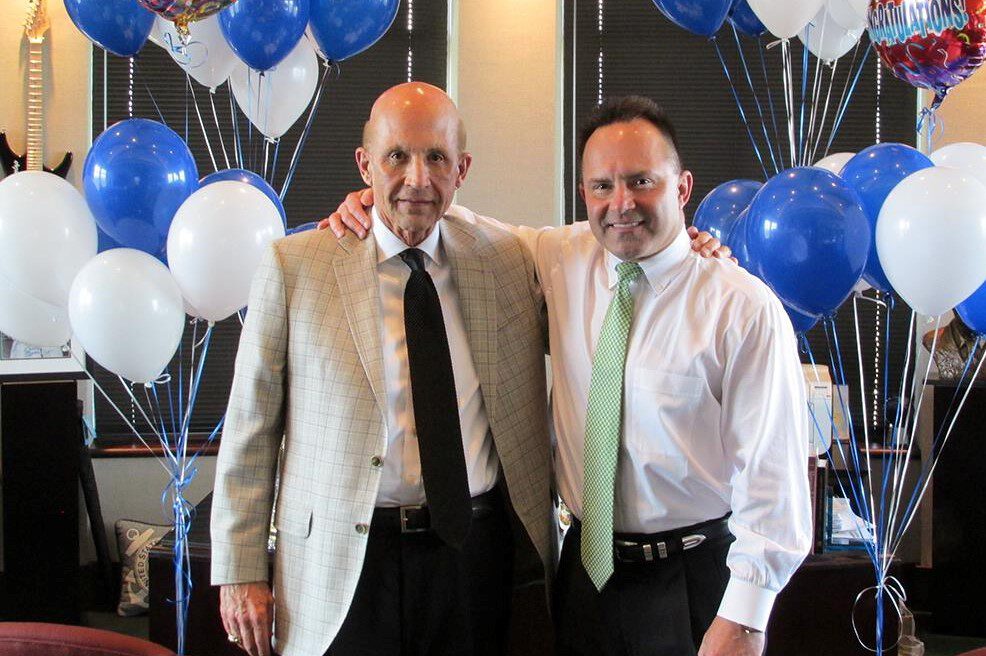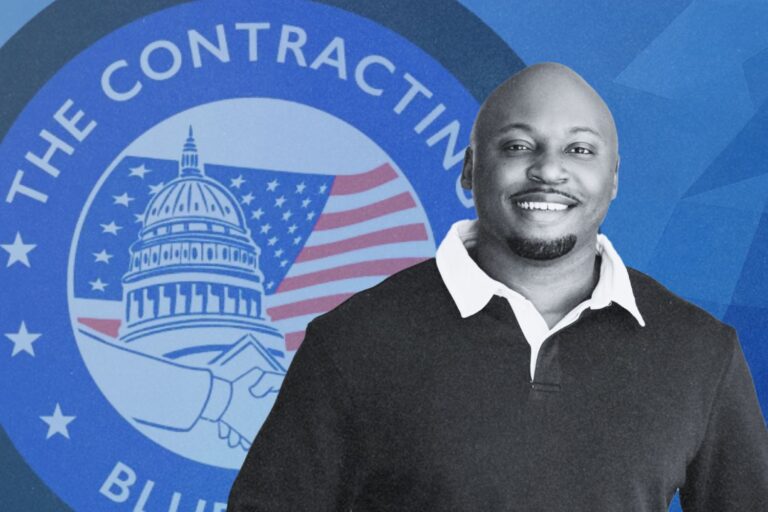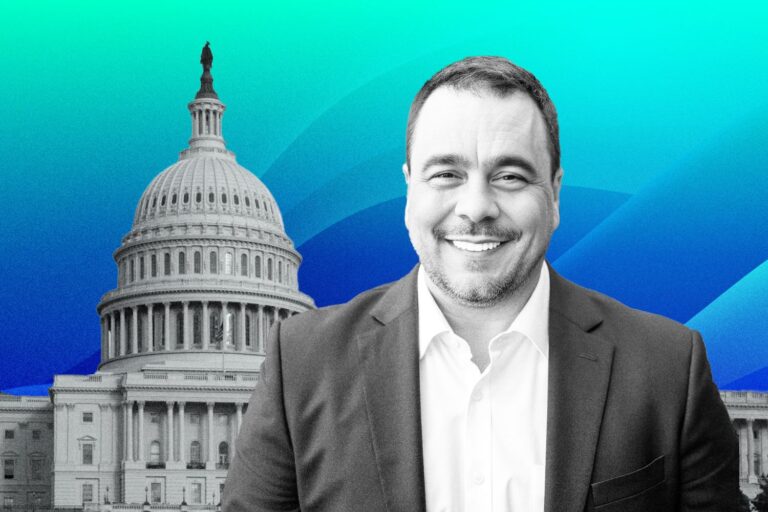Centimark: How “Turning the Lens Inwards” Makes a Leader in the Roofing Industry
As a family-owned business that takes over roofing contractors for more than five decades, CentiMark was heralded for its successful story that is full of dream, risk and hard work. The company was founded by Ed Dunlap in 1986 and has now expanded with over 95 offices throughout the United States, Canada and Mexico. Last year, this Canonsburg, PA-based roofing and flooring juggernaut earned the first place at top 100 roofing contractor lists with a whopping $813 million in revenue.
Ed Dunlap and CentiMark have achieved unbridled success along with amazing challenges in the growth and development of the business. Today, with Tim Dunlap, Ed’s son, at the helm of the business, CentiMark remains the largest commercial roofing and flooring company in North America.
A Family-Owned Business: Growing from Within
Ed Dunlap has always had a natural gift for selling. That much he understood — and kept in reserve in case his plan to launch his own janitorial supply company fell through. What the Cleveland-based roofing supplies salesman didn’t realize in 1968 was that he was on his way to forming one of the industry’s largest and most successful roofing companies, as well as embarking on a business career that most entrepreneurs can only dream of.
After the cleaning business D&B Laboratories, Mr. Dunlap started Northern Chemical Company with $1,000 and one associate which later became the foundation of CentiMark. The upstart building maintenance products and services business produced first-sales of $98,500.
By the time Mr. Dunlap launched his business, U.S. Steel was king in the region and driving the American economy, and there was no shortage of industrial facilities that needed the cleaning chemicals and maintenance he provided. However, the competition was fierce, and it took just about a year for him to realize there was a hole in the market for roofing contractors. In response to customer’s needs, his company shifted from product sales to installation, maintenance and repair of commercial roofs and floors with huge potential for future growth.
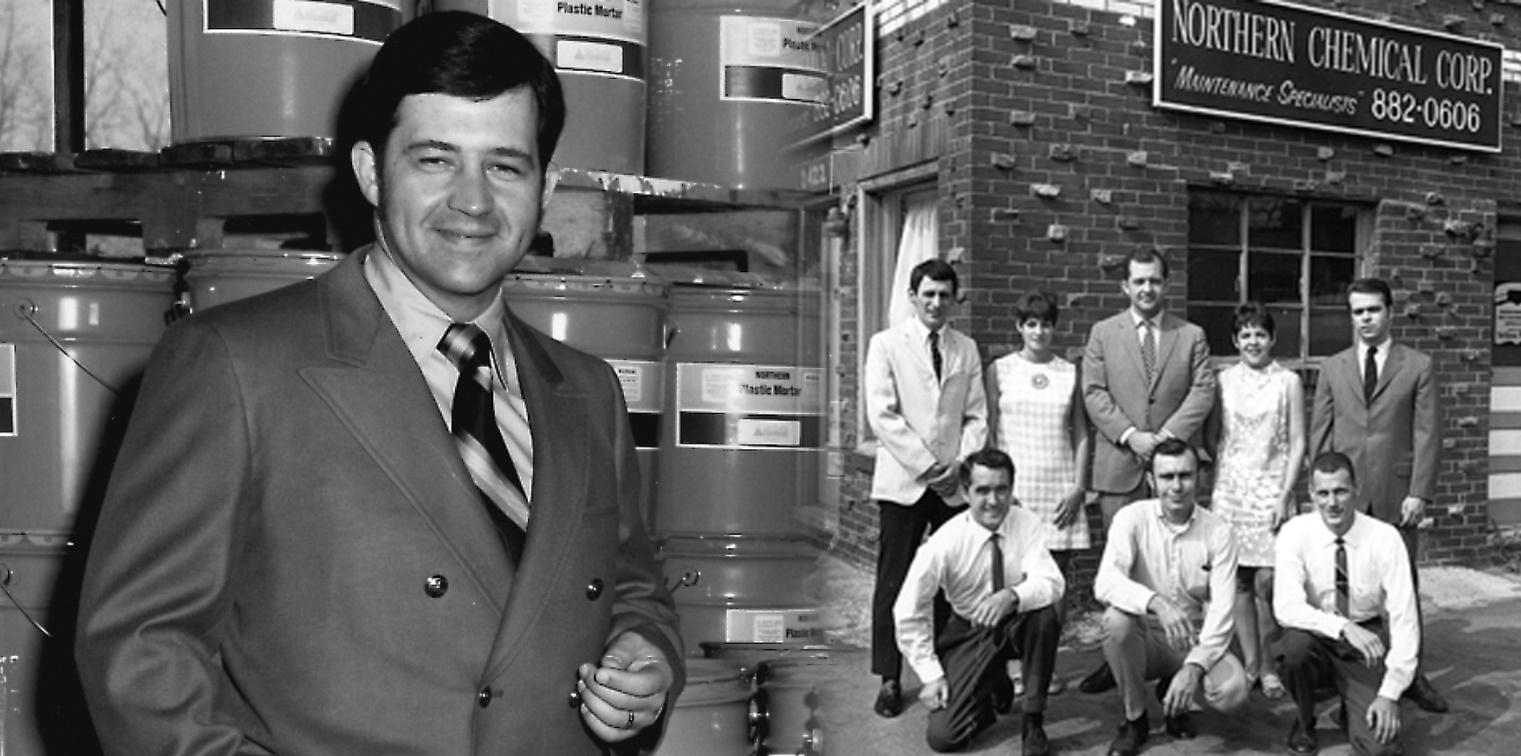
By 1974, sales reached $1 million. The company was renamed as Consolidated Enterprise, Inc with its first sales office expanded outside Pittsburg. However, CentiMark’s big breakthrough came in 1970s when they began to utilizing a new roofing membrane material called EPDM, which was an instant game-changer. The product’s success provided the capital needed for Dunlap to set his sights on expansion, but he was interested only in doing it organically. “That was really the beginning,” he recalled. “We started a branch office in Ravenna, Ohio … then we decided to take the south on in Roanoke, Va., and gradually built it up to the point where it’s at today,” he said. “Everything was grown in-house. The only thing we acquired was good people in those areas.”
“We’ve always felt growing from within and doing it in a slow, business-like fashion — one branch after another, one region after another — just seemed to work out.”
That philosophy carried over under the leadership of President and COO Tim Dunlap, Ed’s oldest son. CentiMark has maintained its longstanding preference to avoid public bidding and instead generate business the old-fashioned way: taking care of current customers and not shying away from calling on prospects.
Tim Dunlap has been a part of CentiMark Corp. since the company was founded by his father. Dunlap was only eight years old at the time, but he was still right there at his dad’s side every weekend. “He paid me 50 cents an hour — that was $2 every Saturday. I would sweep in the warehouse, label cans for flooring products and eventually go on sales calls with him. We would have lunch and he would explain everything going on with starting and growing the business,” Dunlap says.
Tim worked on the roofing and flooring crews, and then as an estimator, technical representative, sales manager, branch manager, regional manager and group director, before becoming the president and COO. He often had to work harder than other employees and wait longer for opportunities because his dad wanted to make sure he was ready for the next step.
“He always waited for me to come to him to pursue the next opportunity, and to make sure I was ready for the next level,” Tim said.
Scale up with Strong Structure
CentiMark divides its territories into five geographic locations that are each led by a member of an executive committee spaced throughout North America. Other members of the committee are leaders in the areas of finance, sales, marketing, service and QuestMark, a division of CentiMark for commercial flooring.
The loyalty and dedication shared by so many employees is by design. In addition to training and professional growth, the company offers relocation opportunities across the United States and shares in the company through its Employee Stock Ownership Plan (ESOP). Employees own a 30 percent stake in the company and have a vested interest in its continued success beyond just a paycheck. That trust was earned over time — in part — by CentiMark’s emphasis on quality and safety.
CentiMark also puts high emphasis on the safety of its employees. Incident rates company-wide are roughly 68 percent lower than the industry average, and in 2015-16, CentiMark reached an Experience Modification Rate (EMR) of .41 — lowest in company history.

In addition to a corporate safety and risk department, CentiMark has branch safety inspectors that serve field offices. Their primary responsibilities are project safety set-up and unannounced inspections to ensure compliance with all customer, federal and state regulations. The company also provides a safety-training certification program that’s comprised of 17 individual standardized safety-training units developed specifically for roofers. “We’re committed to maintaining the same degree of success and reputation in safety as we have in the quality of roofing services that we provide,” Tim Dunlap said.
Top the Industry with Innovation
CentiMark would not be where it is today without Ed Dunlap’s “big-picture” mindset. He doesn’t shy away from taking calculated risks and executing innovative ideas. Innovation was and still remains a priority.
Centimark is renowned with being the first company in the building industry to establish a nationwide accounting program.
Though small accounts were the company’s bread and butter at the time, CentiMark was starting to generate business with larger corporations with a national reach. Dunlap said it made sense to try and set up a part of the organization to call directly to large corporate accounts. He credits a lot of the success to Director of Group Purchases Steve Hecht, who is still with the company after 45 years. One of Dunlap’s first hires, Hecht is among 120 employees with at least 20 years of service with the company.
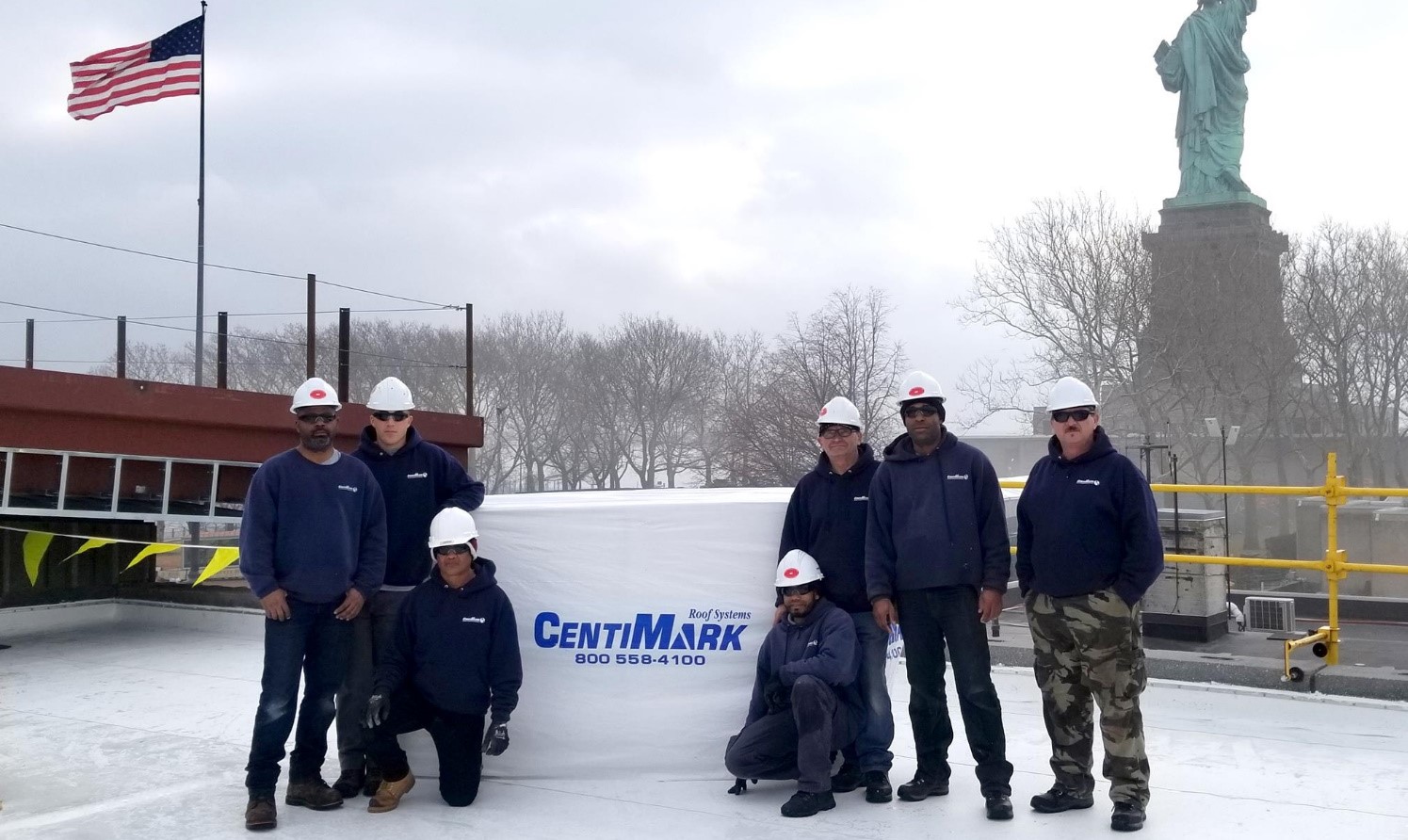
Mr. Dunlap also brought single-source warranties into the mainstream and directed the first national toll-free number for customers and telemarketing campaigns in the industry. The innovations continued in the 1990s, when CentiMark began investing in technology. As the world evolved into the digital age, the company was right on the forefront, formulating programs and designing customized software in-house to manage the business more efficiently. It’s also enhanced relationships with customers.
The cutting-edge technology and success of the national accounts program combined drove the business to a whole new level. They also provided the Dunlaps with a road map to the markets with the highest demand, and that’s where they focused their long-term strategy for expansion. Revenues topped $100M in 1994 and grew to $300M in the next decade.
“We wanted to set up a situation where they (a customer) from anywhere in the country could pick up a phone 24/7 and we could send a team out to address their significant problem,” Ed Dunlap said. “We were the only ones in the United States that could do that. The other companies just didn’t have the stretch that we did.”
Most still don’t, allowing CentiMark to continue dominating the field. And there are no signs of slowing down.
While pleased, the Dunlaps note they aren’t necessarily satisfied. They openly state the next major milestone to eclipse is to become a billion-dollar corporation and given their company’s history of consistently maintaining profitable growth, it’s widely believed to be just a matter of when, not if. “I was never really in it for the money, it was to see how far you can get in America,” the elder Dunlap said. “I wanted to see how far we could go.”
CentiMark: Leadership of a Leader
Both Ed and Tim Dunlap believe that success of any business lies mainly in its people. CentiMark takes great pride in its employees, as their dedication and professionalism is what drive the company to the new level of success and excellence in roofing. Let’s unveil how the leaders of CentiMark manage its team to triumph.
Reward Promising Employees
To stay at the forefront of your industry, you have to make a constant investment in the growth of your employees — and the development of your infrastructure — to continue to perform at peak levels, Tim Dunlap says.
“We need to foster the growth and development of our existing associates to move into roles of increased responsibility. As the president and COO of the organization, my goal is to empower associates at all levels,” he says.
The company also uses its scale to make its workforce more efficient. For example, CentiMark may send northern crews south in the winter, or if a hurricane goes through, it shifts crews to cover that area. Most of the time, Dunlap says they’d rather be working, even if it’s in another city, than laid off for a few months.
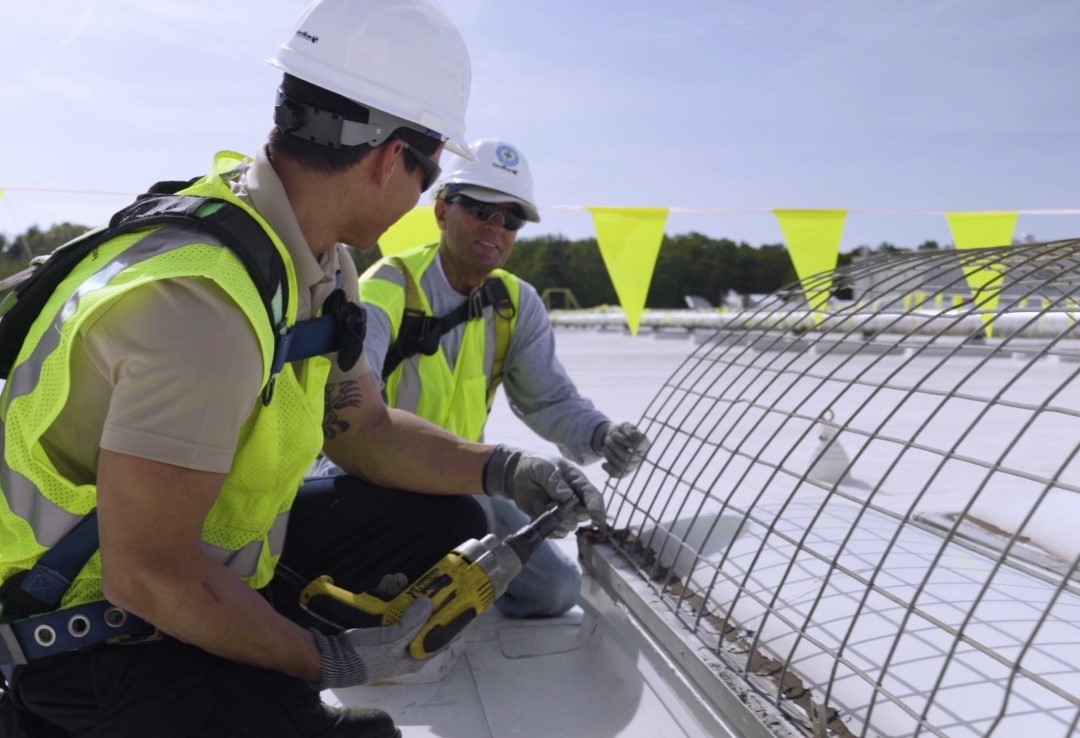
“A lot of these crews, they’re younger guys, so they’re single,” Tim says. “If you’re sitting around in Milwaukee or Cleveland in January or February and we say, ‘We’ve got a job in Puerto Rico or St. Thomas or Dallas, Texas,’ they’re fighting each other to get a seat on the plane.”
CentiMark also specializes its roofing crews. It has a production crew for reroofing and a service crew for roof leaks. Not only is a crew not being pulled off something to do an emergency repair, they are faster because they become experts at their particular task.
Retention Takes Works
But even with the opportunities that are available, CentiMark has to work at finding and retaining its employees. Dunlap says turnover is natural in an industry that’s transient with a lot of younger employees.
Word of mouth and referrals are still some of the best recruiting methods, so if you treat your employees well and provide incentives like benefits, bonuses and training, they will recruit their friends and family. They sell the company to others.
“We try and do over and above what a normal contractor would do to not only entice employees, but to retain them as well,” Tim Dunlap shares.
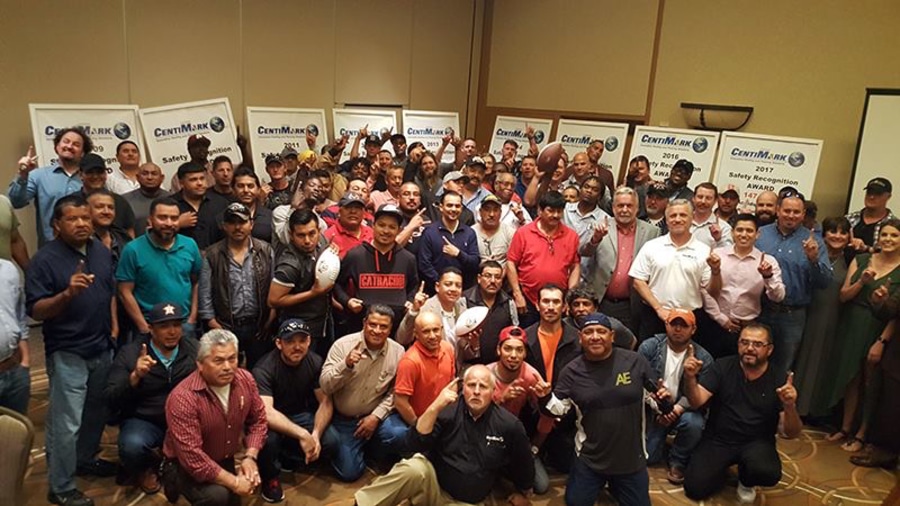
CentiMark also visits trade schools, looks at veterans and is developing videos that speak to the advantages of a career with the company. Dunlap says if the employee is inexperienced, the company is willing to take the time to train and nurture that employee to make him or her interested in the company and want to stay long term.
“You’ve got to work at keeping an employee. Those days of hiring an employee and them spending their next 40 or 50 years with the company are by the wayside,” he says. “The younger generation now, they’ll start and leave company after company if they think it’s a better opportunity or they feel that their next move gets them another step ahead. Nowadays, you have to pay attention to the employee.”
That need to develop employees hit home over the last few years when CentiMark had a few key employees retire.
“Fortunately, due to the loyalty and common understanding of long-term company goals, smooth transition plans were developed,” Dunlap says. “While these transitions are never easy, if an organization fosters leadership and the growth of employees, it does become easier.”
Leave Them Room to Grow
As a company grows, its people need to grow as well, and it’s the job of the business leader to make sure you’re developing a team of good leaders, and not just good managers, Dunlap says. That means sharing and communicating your vision and the company’s performance with the entire organization.
“As a leader, I have found that if you share your vision clearly, solicit honest feedback and react accordingly, your organization will follow you, commit to the vision and develop loyalty fostered by a common goal,” Tim says.
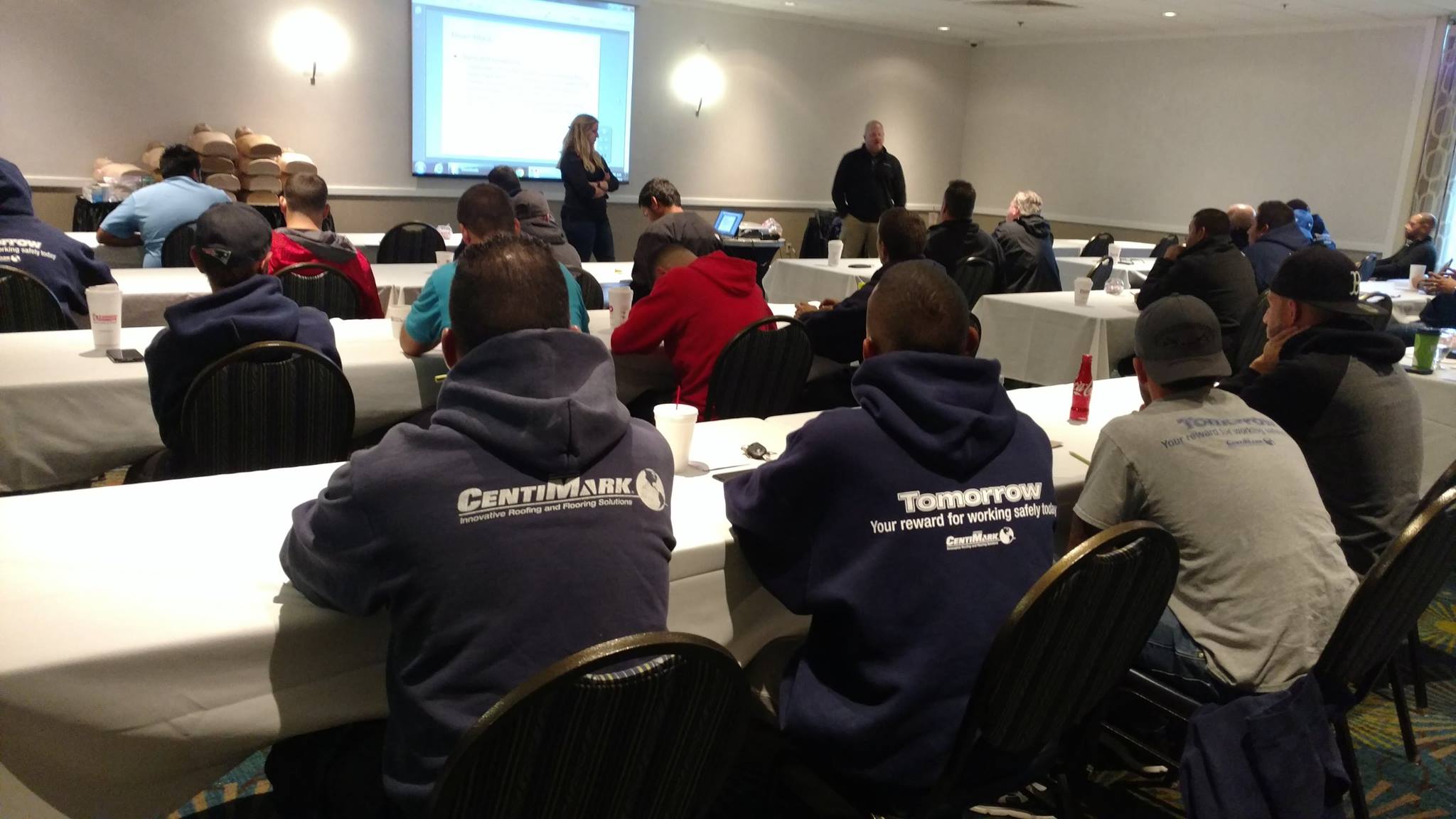
It also helped to increase CentiMark’s employee stock ownership plan program and its distribution at all levels to create a common interest in doing things right.
“We do a lot of internal surveys about all different facets of the business — sales, marketing, our workforce — just to take a pulse on what our people are thinking out there, where they see strength, weaknesses, needs, things of that nature,” Dunlap says.
In a large company, you have to always be on your toes, staying on top of what’s going on. But you also have to rely on your management team, empowering them to be out working with the employees, Dunlap explains.
This kind of environment lets you seek out ways to become unique and better than others in your industry. “We are constantly evaluating where time and resources should be allocated,” Tim shares. “There needs to be a balance between internal-facing investment (operational improvements and efficiencies) and customer-facing investment (creating the best possible buying experience via technology, customer education, sales and marketing). We are constantly balancing the focus between these major investments, and they are often done either in tandem or in alternating sequence, so we have the proper balance between the two.”
A Culture of Giving Back
Great leadership isn’t portrayed through business development but also through the impacts a company has on its community. For CentiMark, its CEO Edward Dunlap leads by example in both business and philanthropy.
Since the early days of the company, Dunlap supported those in need in his community and encouraged volunteerism from his associates. “Giving back to the community has not shaped the CentiMark culture; it is the CentiMark culture,” says Timothy M. Dunlap, CentiMark’s president and chief operating officer. “The culture of giving back and volunteering has been ingrained in us for years. Now, as our company grows, we have more resources to help people.”
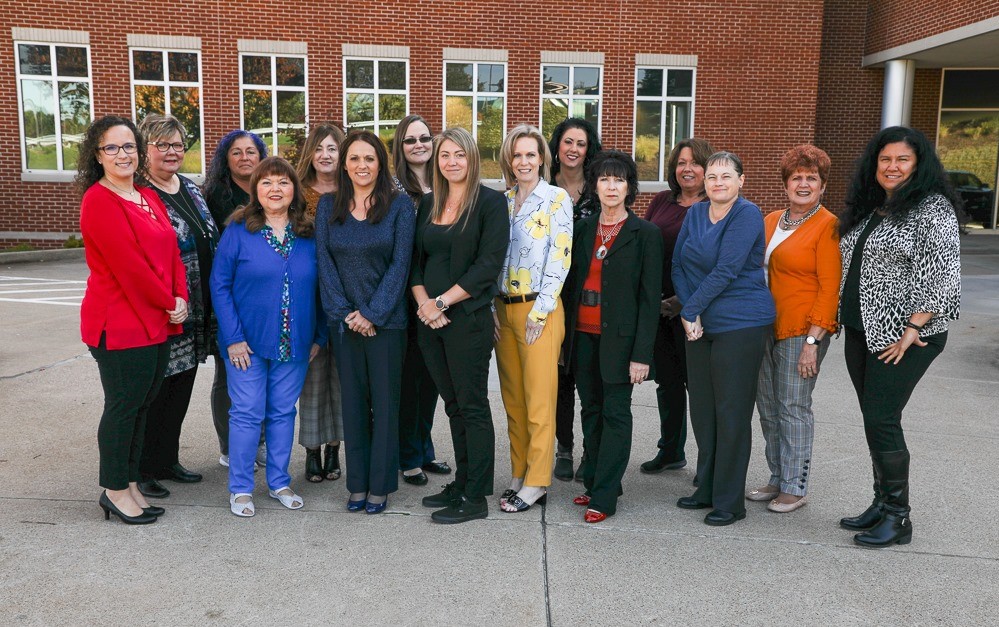
For example, in July 2014, 60 of CentiMark’s 80 offices throughout North America held food drives and made financial donations to food banks in their respective communities as part of National Roofing Week, sponsored by NRCA. They did the same thing last Thanksgiving, and they will do it again this Thanksgiving.
The company especially is committed to children and families. CentiMark associates teach Junior Achievement and host field trips at their corporate offices to show students how a business works. Each year, CentiMark corporate associates deliver Back-to-School, Christmas, and Easter food and gifts to families in need and non-profit organizations. “When you give a child a book bag, school supplies, school clothes and shoes, you not only make their day, but you reinforce the importance of education,” Edward Dunlap notes.
“At CentiMark, we walk, run, bike and golf for charity; we teach school students; we deliver meals; we shop for winter coats; we place Christmas wreaths on veterans’ graves; we support people in need; and we give of our time,” Tim Dunlap says. “We take great pride in our success as a roofing company because our success enables us to increase our charitable and volunteer endeavors.”
The Bottom Line
By laying a strong business structure that that focus its people, CentiMark has been able to secure its reputation as the first go-to company in roofing and flooring industry. As a long-lived family-owned business, Ed and Tim Dunlap’s take great strides in preserving the company’s values yet at the same time, constantly adapting and staying at the forefront of innovation.
The company has just celebrated its 53 years of operations last April. “While CentiMark has many assets, our greatest strengths have always been and will continue to be the dedication and hard work of our associates. Together, we work hard and work smart.” – Edward Dunlap shares.

